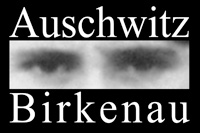




Basic information on Auschwitz
Information package for the media for the 70th anniversary of the liberation of Auschwitz
A set of basic, although not always universally known facts regarding Auschwitz. They may help to prepare information materials and to avoid discrediting slip-ups, such as using the term “Polish death camps”.
Auschwitz, the Nazi German concentration and extermination camp, is the most recognizable symbol of the Holocaust and place of genocide in the world. Never, and in no other camp or extermination center did the SS murder such a great number of Jews from nearly all the Nazi occupied Europe. However, many people do not know that Poles constituted nearly 40% of the prisoners registered in the camp and that those incarcerated and murdered there included also: the Roma, Soviet POWs and prisoners of over twenty nationalities. And only experts will know the role Auschwitz was to play in the Nazi German settlement plans of Eastern Europe, which – aside from exterminating the Jews – posited also the destruction of the majority of the Slavic population.
This information package, including also a mini dictionary of terms from the history of Auschwitz, will be handed out to all the journalists accredited to the liberation anniversary commemoration.
